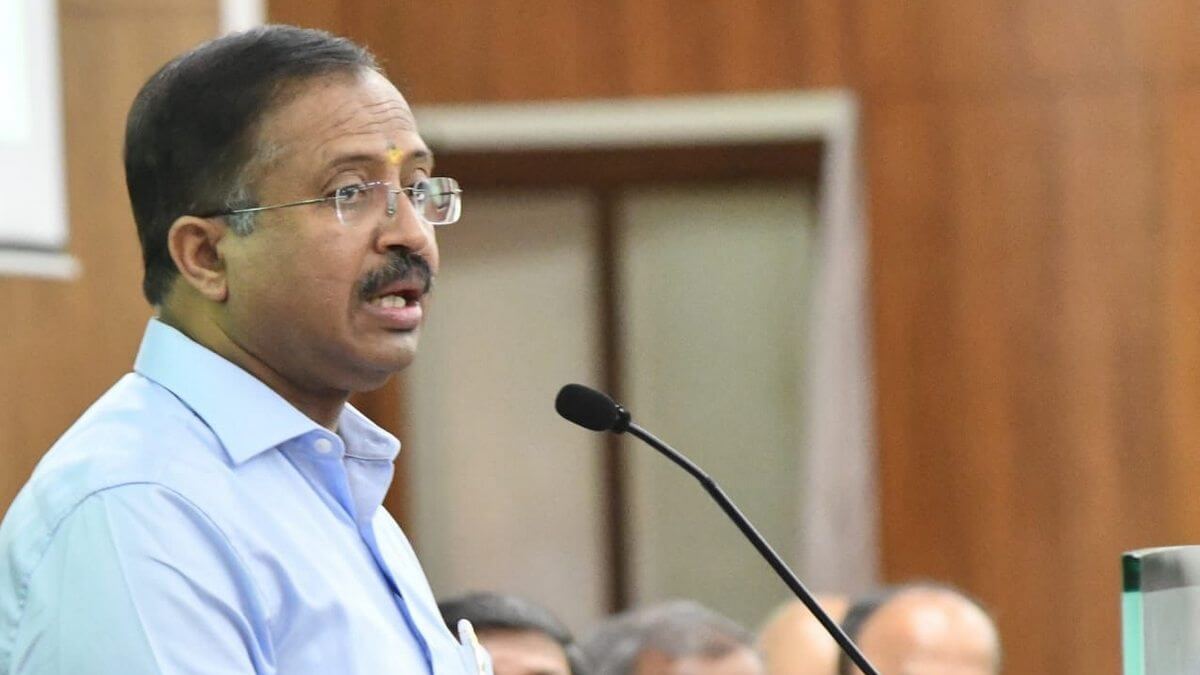Australia
The first meeting of the India-Australia Joint Working Group (JWG) on Cyber Security Cooperation was held on Thursday. The Indian delegation was led by Paulomi Tripathi, Director (Oceania), Ministry of External Affairs of India; Australia was represented by Rachel James, Special Advisor, Cyber Affairs and Critical Technology at the Department of Foreign Affairs and Trade.
The JWG was established in 2021 under the Framework Arrangement on the Cyber and Cyber-enabled Critical Technology Cooperation, which was signed between India and Australia. It aims to bolster bilateral cooperation in the field of cyber affairs by establishing channels for policymakers and experts to collaborate.
According to a press release by the Indian Ministry of External Affairs, the delegations “shared cybersecurity threat assessments as well as information on legislation and national cyber strategies.” In order to strengthen security infrastructure as well as the expanse of 5G technology, they agreed to “enhance cooperation with the private sector and academia and to work together in skill and knowledge development.”
The delegations also celebrated the progress made in bilateral relations since the upgradation of their diplomatic relationship to a “Comprehensive Strategic Partnership”, which was concluded during a virtual summit between the countries’ prime ministers in June 2020.
The partnership of the two countries has been strengthened through their participation in the Quadrilateral Security Dialogue or the “Quad”. Through this alliance, which also includes Japan and the United States, India and Australia have expanded their cooperation and collaboration in the Indo-Pacific, specifically to counter China’s growing aggressive activities in the region. The two countries have also time and again reiterated their joint commitment towards a rules-based Indo-Pacific, for which they have engaged in several military and naval exercises.
Indonesia
Indian Minister of State for External Affairs and Parliamentary Affairs V. Muraleedharan and Indonesian Vice Minister of Foreign Affairs H.E. Mahendra Siregar met virtually on Thursday. During the meeting, Muraleedharan communicated his gratitude to the Indonesian government for the successful delivery of relief material to help India combat the second wave of the COVID-19 pandemic. This week, Indonesia delivered 1,400 oxygen concentrators through the Indian Red Cross Society “as a form of support and solidarity to India.”
They also discussed India-Indonesia bilateral partnership, which continues to flourish in several areas, including regional and global issues. In this regard, they agreed to bolster their Comprehensive Strategic Partnership.
Over the past few years, the defence and security partnership between the two sides has been growing, especially in the maritime domain. In pursuance of this growing partnership, India and Indonesia participated in the 35th edition of the India-Indonesia Coordinator Patrol (IND-INDO CORPAT) in December last year. The joint naval exercises were held along the International Maritime Boundary Lines.
The exercises were part of the Indian government's Mission SAGAR (Security And Growth for All in the Region). To achieve its mission of regional maritime security cooperation, the Indian Navy has been proactively engaging with navies of its maritime neighbours for “coordinated patrols, cooperation in EEZ surveillance, Passage exercises, and bilateral/multilateral exercises” and other security measures.
The Indo-Pacific neighbours have strengthened cooperation through their Joint Working Group (JWG) meetings, during which they regularly discuss matters of mutual importance. Through these discussions, the two countries have decided on the timely exchange of intelligence on drug seizure cases, and illegal entry and exit points of illicit drug trafficking on their maritime border.
Arab-India Energy Forum
The two-day virtually meeting of the first Arab-India Energy Forum, conducted under the joint-chairmanship of India and Morocco, concluded on Wednesday. The meeting focused on bolstering bilateral energy cooperation and power trading.
The mechanism was established through the Executive Programme of the Arab-India Cooperation Forum, along with the discussions between Indian officials and representatives of the League of Nations on January 12.
The forum was inaugurated by RK Singh, the Minister of State (Independent Charge) for Power, New & Renewable Energy of India, Aziz Rabbah, the Minister of Energy, Mines and Environment of Morocco, and Kamal Hasan Ali, the Assistant Secretary-General for Economic Affairs of the League of Nations. According to a statement by the Indian Ministry of External Affairs, sessions were held on “potential and challenges of cooperation in the fields of energy transition, intra-regional power trading, hydrocarbons and nuclear power generation.”
The leaders also highlighted the importance of “energy efficiency programs” and agreed to cooperate and “transition towards clean and green energy economies.” To this end, they agreed to reduce their reliance on hydrocarbons. The leaders have agreed to conduct the second Arab-India Energy Forum in 2023.
The meeting was critical for India as it continues to be the third-largest consumer of oil. According to Al Jazeera, India’s demand is likely to increase to over six million barrels a day by 2024 from 4.4 million in 2017.
Thailand
India participated in the 31st edition of the Indo-Thai Coordinated Patrol from June 9 to June 11. The exercise saw the participation of Indian naval ship Saryu, Thai vessel Krabi, and Dornier Maritime Patrol Aircraft from both navies.
The two countries have been engaged in these exercises biannually since 2005. It is conducted along their International Maritime Boundary Line with the aim of securing the Indian Ocean for international trade. To achieve this, the CORPAT enhances interoperability between the two navies to prevent illegal activities such as drug trafficking, piracy, and maritime terrorism in the region.
The exercises were part of the Indian government's Mission SAGAR (Security And Growth for All in the Region). To achieve its mission of regional maritime security cooperation, the Indian Navy has been proactively engaging with navies of its maritime neighbours for “coordinated patrols, cooperation in EEZ surveillance, Passage exercises, and bilateral/multilateral exercises” and other security measures.
Indian Diplomacy: Weekly Round-Up (5 - 11 June, 2021)
This week, Indian authorities convened several meetings with officials from Australia, Thailand, and Indonesia, among others.
June 11, 2021

Indian Minister of State for External Affairs and Parliamentary Affairs V. Muraleedharan SOURCE: TWITTER
